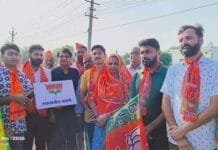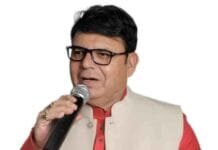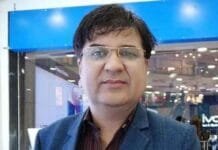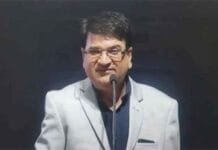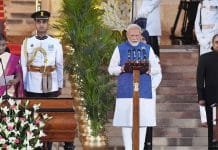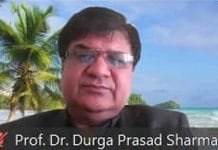“It is ironic, however, that the Internet has historically provided a channel to
‘democratize the people’s voices globally,’ but is now struggling for its own democratic governance.”- Prof DP Sharma
INVC NEWS
New Delhi,
“It is ironic, however, that the Internet has historically provided a channel to ‘democratize the people’s voices globally,’ but is now struggling for its own democratic governance.”- Prof DP Sharma
People with disabilities are too often ignored or even forgotten in development processes, and their opinions as citizens are ignored or taken into account only infrequently. Prof Durga Prasad Sharma, an Indian computer scientist, International Adviser of INVC, digital diplomat and IT Consultant of ILO has been fighting for the rights of Inclusion in the connected world of the internet. He said that the Internet itself is Inclusive but its high cost of connectivity and device makes it Exclusive. However, if Government makes it affordable then the goals of Inclusiveness can be achieved and the multi-fold divides and devoid can be alleviated. Prof Sharma, on Friday, said that the internet is become an essential part of our life after the COVID pandemic, and is crucial to design, develop and deploy its regulatory and governing norms, and frameworks, adding that it is imperative to bridge the digital divide and devoid with a focus on marginalized people like disables in India and across the world.
Presiding over the session on “Multilateral Divide for Disables in Democratized Digital World” and speaking on the inaugural event held at IIGF-21 on 26th November, Delhi, Prof. Sharma said, “In today’s fast-changing IT world, every system needs rapid review and redesign and if it continues in its old ways, it becomes, Un-Controllable, Un-Manageable, and Un-Governable”. He said the internet needs a multilateral review for its responsible and sensible survival with benign, democratic, and technocratic governance. The internet has emerged as the Finest Model of Global Democracy but in parallel to its emerging applications, it has numerous challenges such as its own democracy, alleviation of the digital divide and devoid and the assurance of inclusiveness for all the segments of the societies like persons with disabilities.
Prof Sharma indicated that the world has rejected the emerging principles of Net-Neutrality but on the other side techno colonization and imperialism are rising. If we fail, the Multi-fold digital divide and devoid (Rural vs. Urban), (Poverty vs. Richness), (Haves vs. Have Not) will force the marginalized people to face another fold of challenges i.e., techno disruption and exclusion. Prof Sharma suggested a globalized regulatory framework for checking the disabled friendliness in quality assessment and assurance of Internet-enabled systems and services before the official launch. He gave the example of the Aadhar card and how it was made inclusive for those who don’t have fingerprints and Irish.
Dr Neha Sharma from UK Shared her experience working cross-countries on health care and research on Covid-19 and shone a light on the digital divide and safety concerns along. The pandemic has accelerated the digital infrastructure of the world yet those without access have been left behind. It has been essential to access and reach out for better research, health care, and protecting communities who are more vulnerable with disability of physical or mental capacities. As an invited speaker, She raised the need for policies, procedures, and safeguards to be in place for all accessing digital services and for those who are still devoid of such benefits. ‘Privacy and data protection have been major burden across the profession, this becomes more essential when issues like domestic abuse and mental health, associated with shame, stigma, and fear of disclosing. In the high-risk population, there must be a clear operational guideline and data sharing agreement across the internet for cross-national professionals. Dr. Neha Sharma has been working with the UK, Africa, and India throughout the Pandemic and supporting research on COVID-19, domestic abuse, and developing teletherapies for mental health and chronic illnesses.
Dr Kailash Maheshwari, Assistant Professor and Program Coordinator (BSIT) from Saudi Electronic University, Riyadh, Saudi Arabia also invited to the session as a speaker. He highlighted the importance and significance of the role of the Internet in the field of higher education, especially the people with special needs. Dr Maheshwari also addressed the challenges and probable solutions to overcome the issues of an inclusive education system. In his speech, he focused on the impact of Internet and Communication Tools (ICT) in blended learning systems in the teaching-learning process which can help individuals and society at large. Dr Rakesh Kumar from USA was present as a panel speaker in the workshop. Because of some emergency issues, Mr Vijay Samnotra, a former International diplomat of the United Nations and panel speaker couldn’t attend the session.
Under the leadership of Hon’ble Prime Minister Sh. Narendra Modi, the Digital India program is leading India towards a knowledge-based economy empowered by large-scale digital transformation. Availability of Internet bandwidth, data is driving innovation and empowering Startups, students, businesses, the common man and has placed India among the global leaders. Internet is the bridge to solutions that will solve some of the biggest challenges faced by the world. The entire event of IIGF-2021 has been organized virtually on “Hubilo” (virtual platform). At the beginning of the session of the event, Mr Satish Babu, reception committee member of IIGF-21 welcomed and introduced Prof DP Sharma as a chairman of the event session.

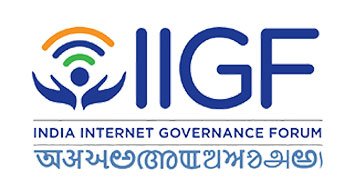
 ‘democratize the people’s voices globally,’ but is now struggling for its own democratic governance.”- Prof DP Sharma
‘democratize the people’s voices globally,’ but is now struggling for its own democratic governance.”- Prof DP Sharma